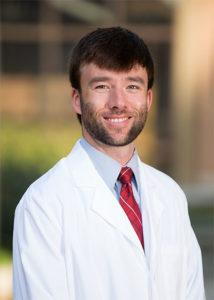Antibiotic Resistant Infections And How We Can Help Stop Them
- posted: Feb. 25, 2019
One of the most important jobs that we have as physicians is the diagnosis and treatment of infections. As an ENT, I constantly battle the microscopic villains which frequently find our ears, sinuses, lymph nodes, etc as places to live and grow.
There is one specific type of bacteria that I am encountering regularly in this community that raises some concerns. Methicillin-resistant Staphylococcus aureus (MRSA) is a specific bacteria that causes many different types of infections. Skin abscesses (or boils) of the neck and face have been almost exclusively caused by this infection in my experience, often requiring surgical procedures to treat sufficiently. So what makes this bacteria important and why is it here?
MRSA-what is it and who gets it?
Like previously mentioned, MRSA is a bacteria in the staph family. Over the last 70 years this bacteria has developed a mutation in its cell wall to make treatment with antibiotics in the penicillin family ineffective. This bacteria happens to be very common, and according to the Center for Disease Control (CDC), about 1 in 3 people carry this bacteria on their skin. It is particularly common in healthcare settings as well as facilities such as assisted living centers, schools and daycare, military barracks and locker rooms.
Why is this important?
The presence of this bacteria brings up a very important point for the health of our community and future generations. MRSA, in addition to other antibiotic resistant infections, exists due to overuse of antibiotics. This is a major problem in our country, with research estimating that at least 30% of antibiotic prescriptions are unnecessary. Ironically, the medications used to treat bacterial infections allow for mutated bacteria to live and grow. We are finding more and more of these resistant bacteria and they can be extremely dangerous as there are limited options for treating them at this time.
How can we make a difference?
First, antibiotics serve an important role in the treatment of common infections of the head and neck and are certainly indicated in some situations. What is much more common, especially in daycare settings, are the pesky viruses that cause fevers, runny nose, cough and congestion. Antibiotics have no activity against viruses, the vast majority of which run their course over 5-7 days with treatment of symptoms only. If your primary care or urgent care provider recommends observing in this manner, trust that this is appropriate management and that this provider has the best interest of your child and future generations in mind. Also, avoid taking incomplete courses of antibiotics and picking up an old bottle of antibiotics to try a dose or two.
What are signs and symptoms of MRSA skin and soft tissue infections of the face and neck?
- Skin that is red, swollen, painful and warm to touch
- Full of pus (whitish yellow, thick fluid) or other drainage
- Fever >100.4℃
How do I prevent MRSA infections?
- Maintain good hand and body hygiene. Wash hands often, and clean your body regularly, especially after exercise
- Keep cuts, scrapes and wounds clean and covered until healed
- Avoid sharing personal items such as towels and razors
- Get care early if you think you might have an infection
If you notice any warning signs of an abscess of the face or neck we are here to help you. We can provide all levels of care from evaluation, medical treatment, office drainage as well as hospital admission and surgery right here in your community. For more information also refer to valid online resources such as the CDC (www.cdc.gov/getsmart).

Brian Hixon, MD
Our Location
8096 Twin Beech Road, Suite 102
Fairhope, AL 36532
(251) 990-1969
Office Hours
Closed for Lunch 12:00 pm - 1:00 pm
8:00 am - 4:00 pm
8:00 am - 4:00 pm
8:00 am - 4:00 pm
8:00 pm - 4:00 pm
8:00 pm - 4:00 pm
Closed
Closed

